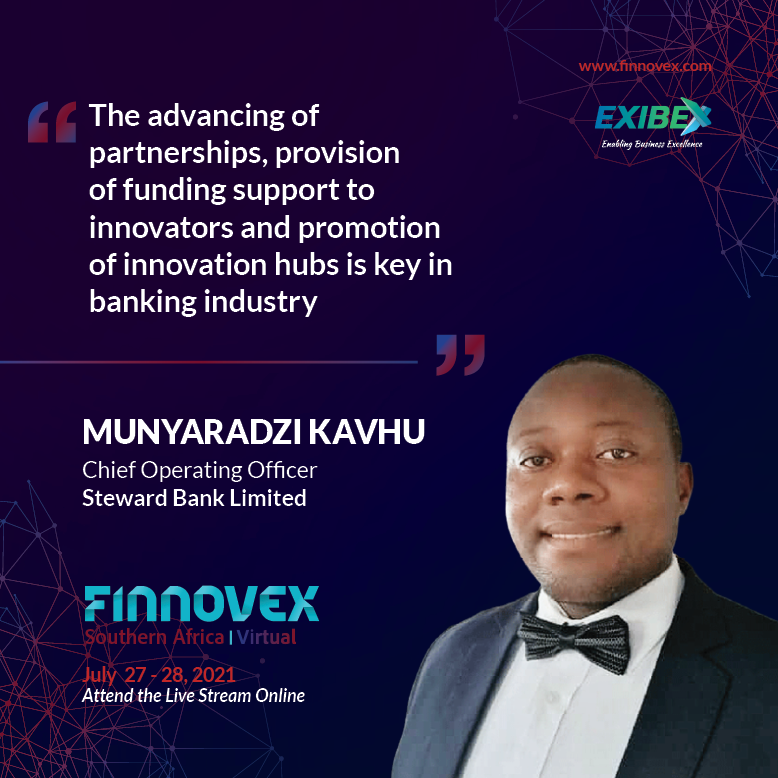Speaker Interview- Munyaradzi-Kavhu
HOME / Speaker Interview- Munyaradzi-Kavhu

Munyaradzi Kavhu is the current Chief Operating Officer (COO), at Steward Bank which positions itself as a mass bank focused on providing banking solutions through the use of technology.
Munyaradzi Kavhu has been with Steward Bank for the past 10 years and he is passionate about financial service. He also possess a vast amount of 16 years’ worth of experience in Banking and Financial Markets.
In his previous role where he led the Banking Services and Operations segment at the premier Ecobank, his mandate involved leading the Banking Services and Operations segment, driving business growth opportunities as well as ensuring compliance to internal policies and banking regulations.( Attend from anywhere 💻🖥📱 )
Q- As we are aware, Banking services and Financial Institutions will need to act fast to create a robust framework, to survive in the post COVID-19 era. What is your opinion on investing in a digital future and developing new technological solutions?
The adoption of digital banking services platforms is an imperative in the new normal presented by the Covid 19 situation. The drive towards cashless, contactless and convenient banking solutions is a key strategic consideration.
Q-Would you like to share any personalized experiences within your organization that has been improved by use of data and advanced analytics?
Leveraging on data analytics has enabled the Bank to capture critical customer behaviour indicators around their financial profiling and spending patterns that fed into effective segmentation for tailor-made financial solutions.
Q- Why do you think it is important to build and enforce a Cashless Economy where digital lending and online payments would be incorporated?
A digital cashless economy improves the financial security aspects, which are of concern when handling huge sums of cash and assist in better dealing with anti-money laundering assessments for Banks. Digital financial services come handy in affording customers the capacity to handle their financial affairs remotely and at their convenience when looking at saving, investment, transactional and funding needs.
Q-We are aware that automation simplifies core-banking operations. However, does cyber treats hinder this in anyway?
Cyber risks remain an inevitable concern in the provision of digital financial innovations. However, this is can be dealt with by scoping the level of risk profile inherent in an institution and its client pool from which mitigating measures are developed. Enhancing transaction security around passcodes and customer education is important.
Q-What are the crucial roles of banking and nonbanking institutions, financial organizations, investment firms, fintech companies, and other stakeholders in developing inducements to the paradigm shift within the Southern African Region?
The advancing of partnerships, provision of funding support to innovators and promotion of innovation hubs is key. Customer education and awareness for timely adoption of developed digital solutions also come into play. It is a combined responsibility of all financial markets stakeholders to promote Fintech innovations for the wider benefit of the regional economy.
Q-. In the applications of AI, Machine Learning and other Immersive Technologies, can you state 3 limited factors within the Southern Africa?
Cost considerations around implementation and wider scale application of AI and Machine Learning. Potential technology resistance due to concerns on machines replacing people. Limited creativity as AI solutions are built for predefined rule based situations.
Q-. Would you like to give any advice to industry peers getting ready to attend this conference?
In light of the growing pressure for digital interactions between service providers and customers, the departure from traditional brick and mortar financial services models is a must do. This feeds into improved operating costs, better scale and scope through platform-based banking leading to enhanced customer convenience and efficient business performance.